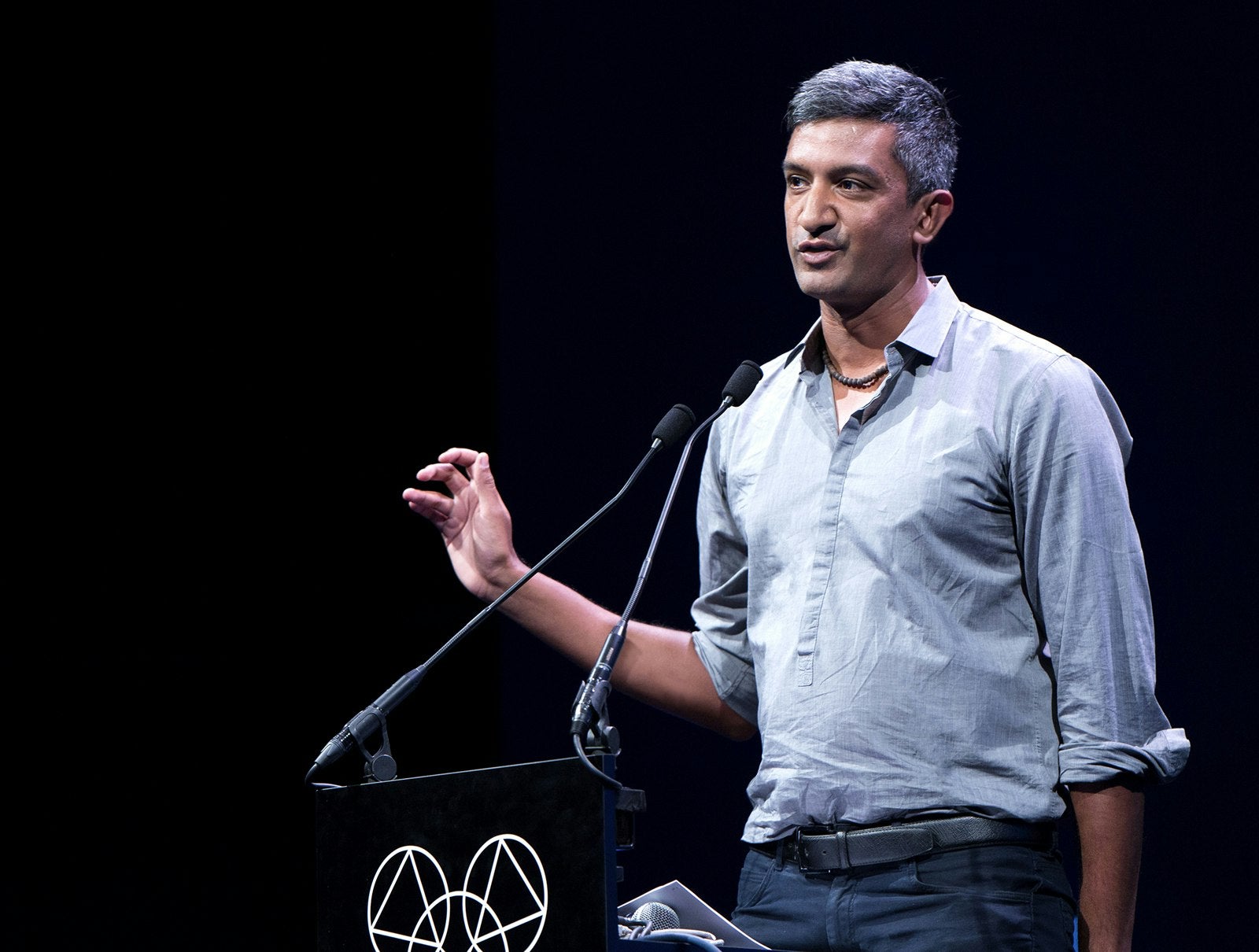UCLA professor of information studies discusses connections between humanism and technology.
In a recent conversation on “Forward with Andrew Yang,” UCLA Professor of Information Studies Ramesh Srinivasan spoke to the lobbyist and former political candidate the omnipresent role that digital media and technology play in everyday life. In their YouTube discussion on “Planned obsolescence, digital bill of rights, & regulating tech companies as public utilities,” Srinivasan, a scholar of the impact of technology and social media on politics and society, noted that, “The digital world… is not simply about using social media or an exceptionalized example like Facebook.”
“The digital world is in everything – when we get bank loans, when we go to the hospital, the police department, criminal justice system, or lack thereof, in my opinion – they are all mediated by technology [and] data,” he said.
Srinivasan, who studied engineering at Stanford and earned his doctorate in design and tech studies at Harvard, said that his interest in philosophy has driven his work around humanism and its relationship to technology.
“… Ultimately, my interest was in humanity – in our species, in our planet,” he said in discussion with Yang. “Obviously, technology interests or literacies in technology are critical to understanding our life chances as human beings at this point in time.
“I always saw a profound disconnection between … the world of engineering and the worlds that our engineering [was] going to impact… As engineers, we weren’t trained to think deeply about political questions, social questions, cultural questions, economic questions – definitely not global questions.”
Srinivasan, who has worked in more than 30 countries exploring AI and digital technologies, said that the human component cannot be ignored in the use and development of technology and digital media.
“My skills are far less as an engineer, though I do know how that mind works, and more as someone who can work with people, understand what they wish, what they want, and build with them,” he said. I would like to introduce that vision into where we go with this digital revolution. It’s time for us to ask these big questions and make these decisions in the collective interest … about the future of data, the future of AI, the future of surveillance and data privacy issues.”
Throughout his career, Professor Srinivasan has critiqued and proposed alternatives to a status quo where technology corporations hold unlimited reach into both the public and private lives of their billions of users worldwide and has studied the relationships between new technologies and political, economic, and social life in more than 70 countries, working with governments, businesses, activists, and civil society organizations to advise on technological futures.
Srinivasan is also a faculty member of UCLA’s Design Media Arts department and the founder and director of the Digital Cultures Lab at UCLA. His books include “Beyond the Valley: How Innovators around the World are Overcoming Inequality and Creating the Technologies of Tomorrow,” (MIT Press, 2019), named by Forbes as a Top Ten Tech Book in 2019. His other publications include, “Whose Global Village? Rethinking How Technology Impacts Our World” (NYU Press), and “After the Internet” (with Adam Fish), published by Polity Press. Srinivasan served as a national surrogate for Senator Bernie Sanders’ 2020 presidential campaign and as an Innovation policy committee member for President Biden.
Srinivasan is a regular speaker for TED Talks, and has made routine media appearances on MSNBC, NPR, Al Jazeera, Democracy Now!, CBS, The Young Turks, AtlanticLive, and the Canadian Broadcasting Corporation, BC. He has contributed op-eds and his research has appeared in international publications including the Los Angeles Times, The Guardian, Wired, The New York Times, Al Jazeera English, The Washington Post, FAZ (Germany), The Financial Times, CNN, Folda Sao Paolo (Brazil), BBC News, the Christian Science Monitor, National Geographic, Quartz, and The Economist.
In 2021, Professor Srinivasan was featured in a CBS Originals documentary on this digital pandemic of disinformation, “Conspirituality: How Wellness Became a Gateway for Misinformation.” He has also commented recently on the use of social media by politicians to shape public perceptions and how it results in political polarization and the spread of conspiracy theories. Visit these links for his commentary.
To watch Professor Srinivasan’s conversation with Andrew Yang on “Planned obsolescence, digital bill of rights, & regulating tech companies as public utilities,” visit YouTube.
